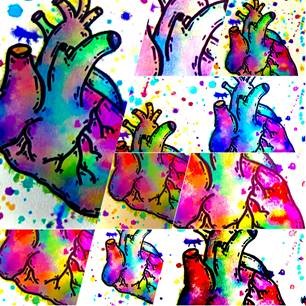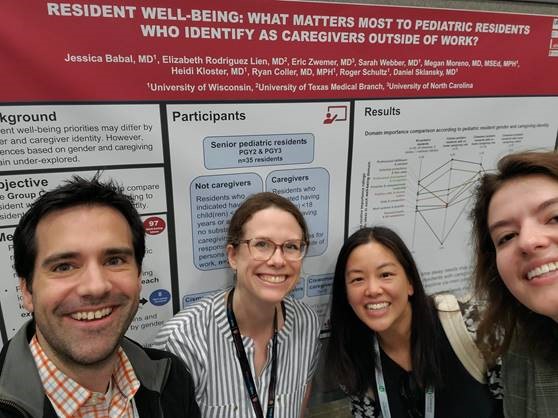A message from Dr. Babal
Welcome. My research and scholarly work explores compassion and humanism in medical education and well-being in medicine and health care.
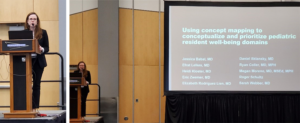
Specifically, I am interested in exploring the ways in which Storytelling and Health Humanities Education can:
- Cultivate compassion, joy, and meaning
- Improve health care delivery
My research also seeks to unearth the drivers of well-being in the learning environment for health care trainees as conceptualized by stakeholders.
Storytelling in medicine
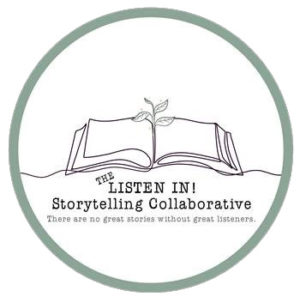 Babal serves as the director of the Listen In! Storytelling Collaborative, an inter-departmental initiative that develops storytelling programming and research.
Babal serves as the director of the Listen In! Storytelling Collaborative, an inter-departmental initiative that develops storytelling programming and research.
Related article: Upcoming Department of Pediatrics Story Slam will feature stories on the theme ‘Roses, Thorns, and Buds’
Read the following excerpt from the article:
Babal saw that medical training and practice seemed to squeeze the stories of patients — and often those of their doctors — to the barest minimum. It seemed there was an assumption that “if we can distill stories to ‘just the biological facts’ we will get everything we need to do accomplished,” Babal said. When that happens, it can become harder to recognize that people’s stories may matter just as much, if not more, than their biology. Stories remind us that “physicians are people, not machines,” Babal explained. “And patients are people — they are not vessels holding disease processes.”
The work of the Listen In! Storytelling Collaborative aims to connect colleagues through story to cultivate meaning and compassion in medicine.
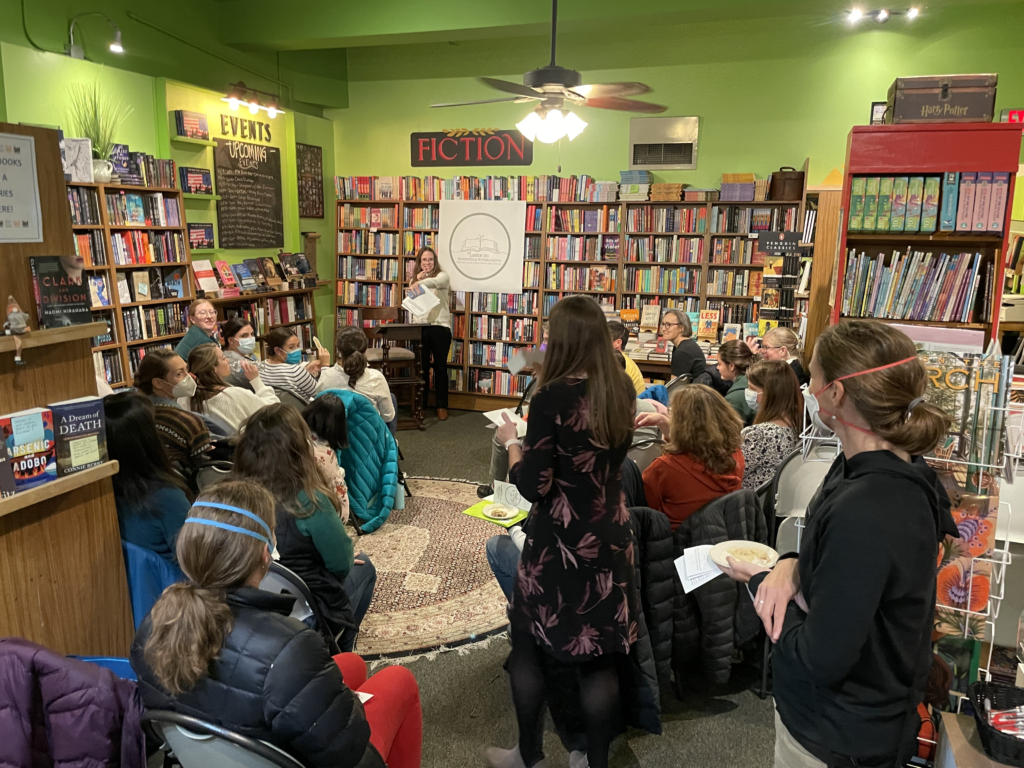
Related publications
- Babal JC, Webber SA, Ruedinger E. First, Do No Harm: Lessons Learned From a Storytelling Event for Pediatric Residents During the COVID-19 Pandemic. Acad Pediatr. 2020 Aug;20(6):761-762. doi: 10.1016/j.acap.2020.05.030. Epub 2020 Jun 5. PMID: 32512052; PMCID: PMC7273150.
- Babal JC, Bauer AS. Using a Limerick Writing Contest to Address Residency and Career Stress and Foster Connection Among Pediatric Residents Approaching Graduation. Acad Pediatr. 2022 Aug;22(6):1081-1084. doi: 10.1016/j.acap.2021.12.030. Epub 2022 Jan 5. PMID: 34995823.
Well-being in health care education and clinical practice
Do you know about the Domains of Pediatrician and Pediatric Resident Well-being? Check out these two articles to find out more.
- Babal JC, Lelkes E, Kloster H, Zwemer E, Lien ER, Sklansky D, Coller RJ, Moreno MA, Schultz R, Webber S. Pediatric Resident Well-being: A Group Concept Mapping Study. Acad Pediatr. 2024 Jan 10;. doi: 10.1016/j.acap.2024.01.004. [Epub ahead of print] PMID: 38215904.
- Webber S, Coller RJ, Schultz R, Rogers EE, Olson ME, Moreno MA, Babal JC. Eight Domains of Pediatrician Wellness: A Stakeholder Informed Model. Acad Pediatr. 2024 Jan 10;. doi: 10.1016/j.acap.2023.12.014. [Epub ahead of print] PMID: 38215902.
These studies use concept mapping strategy to ask pediatric residents, residency program leaders, and pediatricians what they think about a topic and the result is a visual map that graphically organizes thought processes. Do these domains align with your experiences as a pediatrician or with your observations of residents? What resonates with you? What strikes you as surprising?
Related publications
- Babal JC, Eskola L, Jones A, Schultz RJ, Eickhoff JC. Medical Student Well-being Outcomes After a Novel Shared Meal and Resiliency Skills Course. WMJ. 2023 Sep;122(4):272-276. PMID: 37768768.
- Babal JC, Abraham O, Webber S, Watterson T, Moua P, Chen J. Student Pharmacist Perspectives on Factors That Influence Wellbeing During Pharmacy School. Am J Pharm Educ. 2020 Sep;84(9):ajpe7831. doi: 10.5688/ajpe7831. PMID: 33012796; PMCID: PMC7523666.
Pediatric Resident Burnout-Resilience Consortium Study
The Pediatric Resident Burnout-Resilience Consortium Study (PRB-RSC) consists of over 40 member pediatric and medicine-pediatric training programs that are committed to studying the epidemiology and developing best methods to prevent/mitigate burnout and promote resilience in pediatric residents.
Babal PRB-RSC co-PI on behalf of the University of Wisconsin School of Medicine and Public Health Department of Pediatrics, which conducts a national well-being survey annually to assess resident well-being

Related publications
- Zuniga LM, Schuh A, Schwartz A, Seo-Mayer P, Cramton R, Sieplinga K, Kaushik R, Nassetta L, Homme JH, Babal J, Mahan JD, Batra M; Pediatric Resident Burnout and Resilience Study Consortium. Burnout During the COVID-19 Pandemic: A Report on Pediatric Residents. Acad Pediatr. 2023 Nov-Dec;23(8):1620-1627. doi: 10.1016/j.acap.2023.05.004. Epub 2023 May 18. PMID: 37207966; PMCID: PMC10191699.
- Webber S, Schwartz A, Kemper KJ, Batra M, Mahan JD, Babal JC, Sklansky DJ; Pediatric Resident Burnout-Resilience Study Consortium (PRB-RSC). Faculty and Peer Support During Pediatric Residency: Association With Performance Outcomes, Race, and Gender. Acad Pediatr. 2021 Mar;21(2):366-374. doi: 10.1016/j.acap.2020.08.009. Epub 2020 Aug 13. PMID: 32798725.
Gender bias in pediatrics
Babal conducts research with other women in the Department of Pediatrics exploring gender bias in residency education.
Related publications
- Babal JC, Gower AD, Frohna JG, Moreno MA. Linguistic analysis of pediatric residency personal statements: gender differences. BMC Med Educ 19, 392 (2019). doi.org/10.1186/s12909-019-1838-x
- Babal JC, Webber S, Nacht CL, Nackers KAM, Tiedt K, Allen A, Allen BJ, Kelly MM. Recognizing and Mitigating Gender Bias in Medical Teaching Assessments. J Grad Med Educ. 2022 Apr;14(2):139-143. doi: 10.4300/JGME-D-21-00774.1. Epub 2022 Apr 14. PMID: 35463180; PMCID: PMC9017261.
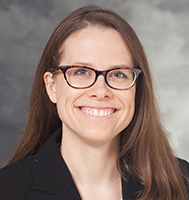
Associate Professor
babal@pediatrics.wisc.edu
Related Links
